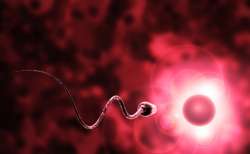AIIMS rejects Delhi woman’s plea to store dead husband's sperm
New Delhi: Delhi-based All India Institute of Medical Sciences has turned down a request by a Delhi woman to help her become a mother with the help of In Vitro Fertilization (IVF) technique. The woman

New Delhi: Delhi-based All India Institute of Medical Sciences has turned down a request by a Delhi woman to help her become a mother with the help of In Vitro Fertilization (IVF) technique. The woman in question had asked doctors to retrieve the sperm cells of her husband who died while being brought to the hospital.
According to a report, AIIMS received the unusual request from the widow of a young man to store her dead husband’s sperm before conducting a post-mortem so she could have a baby.
The couple had been married just a few years and did not have a child. "The parents of the man were also willing and supported her request," doctors told TOI.
However, the doctors had to decline the request as Indian law prohibits such an act and there are no clear guidelines on postmortem sperm retrieval (PMSR) in our country.
Quoting the case in an article published in the latest issue of the Journal of Human Reproductive Sciences, AIIMS doctors now want clarity on PMSR to avoid such a predicament in the future.
According to Dr Sudhir Gupta, head of AIIMS's forensic sciences department, sperm can survive inside the testicular cavity for almost a day after death.
He further added, "Retrieval is a simple process. It can be done within five minutes by dissecting the testis and extracting the sperm. But there are ethical and legal issues involved."
In India, there are guidelines for assisted reproductive technology (ART) clinics which only allow insemination of a woman with a dead husband's semen only when the husband is alive and in sound mind.
Talking about laws in different countries, there are several countries having liberal laws as far as storing dead people’s sperms are concerned.
Israel allows removal of sperm from a dead man's body at the request of his wife and also lets sperm to be transferred to the wife within a year of the husband's death. And in case if wife dies, then the sperm stored cannot be used.